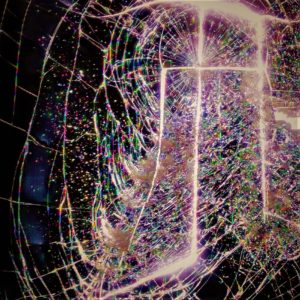This is your last post. ‘Nuff said.
Well, it’s actually the first, but as it falls down the queue it’ll be the last one you read, so I suppose this really is goodbye! Which seems like a fitting place to delve into a rant about technology and society, after all.
 Is there any other realm of inquiry that so polarizes into clear camps of utopian and dystopian thought? On the one hand are the constant PR celebrations of the latest tech breakthroughs, touting all the advantages of convenience, mobility, access, problem-solving, and even (maybe someday) immortality. On the other side are the equally prevalent apocalyptic warnings about the machines taking over, the erosion of privacy and civil liberties, the loss of nature and our humanity, a grim near-future of sci-fi noir.
Is there any other realm of inquiry that so polarizes into clear camps of utopian and dystopian thought? On the one hand are the constant PR celebrations of the latest tech breakthroughs, touting all the advantages of convenience, mobility, access, problem-solving, and even (maybe someday) immortality. On the other side are the equally prevalent apocalyptic warnings about the machines taking over, the erosion of privacy and civil liberties, the loss of nature and our humanity, a grim near-future of sci-fi noir.
We’ve seen all of these views reflected, and that was just in the last 20 minutes online! In fact, the duality of dystopia and utopia has always been present from the inception of the genre, since inevitably one person’s dream world can be another’s nightmare — especially if it is imposed through force or artifice.
This is the conundrum of technology in today’s world: its ubiquity and essentiality render it inevitable in many ways, meaning that the choice of how and whether to engage it has already been made for us. Add in the fact that many of the uses to which technology is put (e.g., militarism, social control, surveillance) have more sinister connotations, and one can readily see the strands of Black Mirror in the blogosphere.
With this argument, I intend neither a naive celebration nor an unremitting critique of technology, but something that recenters our humanity as a means to unpack the implications to help us make sound decisions. Inevitability is a means to its own end in many ways, and it’s crucial to resist this tendency. The future will certainly be informed by the present, and trends can be assessed to good effect, but what follows from where we are now is set in wet concrete at best — and our understanding is always limited.
So this is both a hello and goodbye. I welcome you to this conversation, and bid you farewell on your journey, offering a mere signpost along the way and not a final destination. However you might view technology, and whenever you engage it (at the personal, societal, and global scales), we might work toward a collaborative dialogue. This aim (and the abilities it requires) reflects a basic faith in humanity, and perhaps makes people (!) one of the best technologies ever designed. To err may be human, but at least we’re really good at it.
—
NOTE: This was written circa 2016 as part of an abandoned project looking at the nexus of humanity and technology; I’ve stayed with these themes, especially as the trajectory of tech and its implications escalates.
